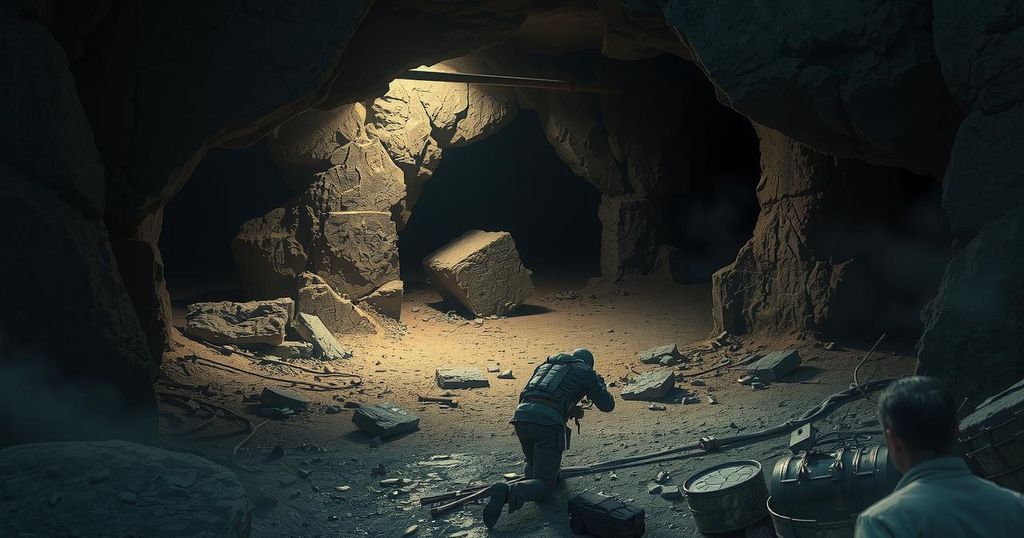Residents in El-Fasher, Sudan, seek underground refuge from ongoing bombings as the civil war rages on, with the RSF targeting the city for control. The situation has led to significant humanitarian challenges, including widespread famine and the loss of medical facilities. International concerns mount regarding the balance of power and the existential threats faced by the Zaghawa ethnic group amidst the conflict.
In the besieged Sudanese city of El-Fasher, residents are taking refuge underground as the prolonged civil war continues. Nafisa Malik, a mother of five, protects her children in a cramped makeshift shelter amidst ongoing artillery bombardments. “Time slows down here,” she remarked, illustrating the dire conditions faced by many families in the area. The violent conflict between the paramilitary Rapid Support Forces (RSF) and Sudan’s Army has devastated the region, leading to critical humanitarian challenges.
The UN Secretary-General, Antonio Guterres, has characterized this conflict as a “crisis of staggering scale and brutality.” Recently, shelling in the neighboring city of El-Obeid resulted in casualties, including a child. As El-Fasher remains the last major city in Darfur under Army control, it has become a vital target for RSF forces seeking dominance in the region.
Desperation has driven residents to construct makeshift bunkers for protection against bombings. These shelters vary from hastily dug holes to more fortified structures reinforced with sandbags. Mohammed Ibrahim, a local resident, expressed his resolve to protect his family after witnessing nearby houses being struck by artillery.
Yale University’s Humanitarian Research Lab has documented extensive damages throughout El-Fasher, linking these to both RSF artillery and Sudanese Army airstrikes. Amid the conflict, one of the city’s remaining hospitals has created an underground operating room to continue medical care during bombardments.
El-Fasher, previously a center of power in the region, now stands as a critical battleground amidst growing concerns of total RSF control over Darfur. The presence of the Zaghawa ethnic group, who have been specifically targeted by RSF forces, adds complexity to the situation. Experts suggest that the loss of the city could significantly alter the war’s dynamics, placing further pressure on the Army to maintain their stronghold amid severe resource depletion.
The humanitarian crisis is exacerbated by a worsening famine in displacement camps surrounding El-Fasher, with fears that it will spread further into the city. Many aid organizations have ceased operations due to increased violence, as shopkeepers struggle to transport goods amidst demanding bribes at checkpoints. The World Food Programme has warned that without aid, the consequences for civilians will be catastrophic.
The situation in El-Fasher exemplifies the dire humanitarian crisis resulting from the ongoing conflict between the RSF and Sudan’s Army. With the city under siege and residents constructing makeshift shelters to protect themselves, the need for international assistance is crucial. The potential for famine looms large, and as local organizations have suspended operations, the immediate provision of aid is imperative to prevent catastrophic humanitarian consequences. The geopolitical ramifications of the city’s control further emphasize the urgent need for intervention in this sociopolitical crisis.
Original Source: www.thehindu.com






